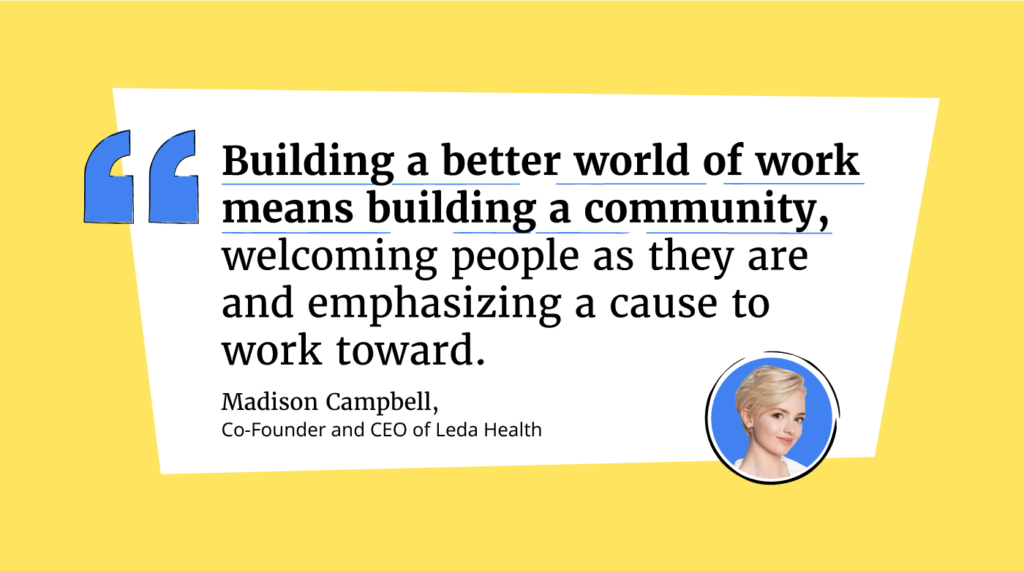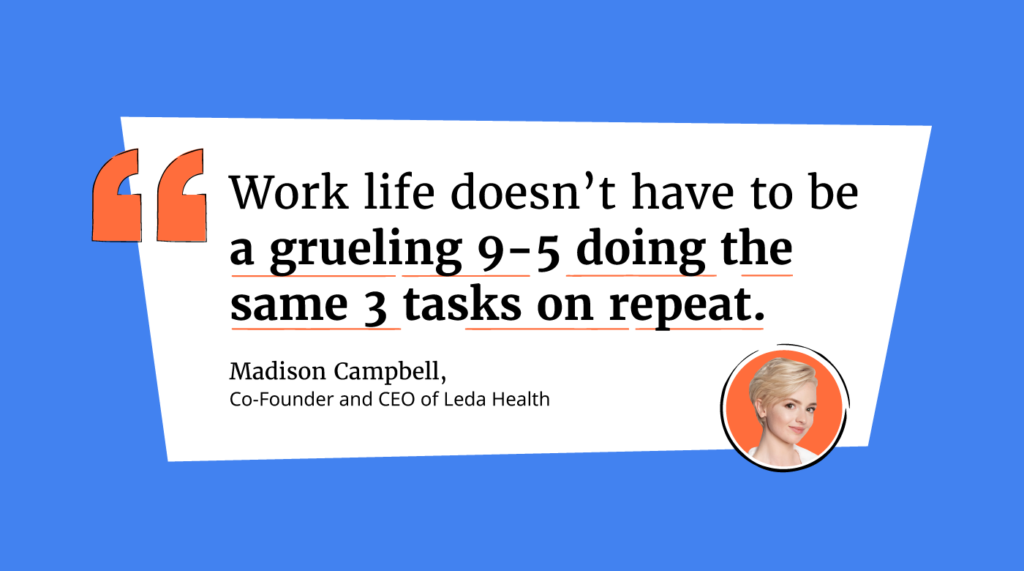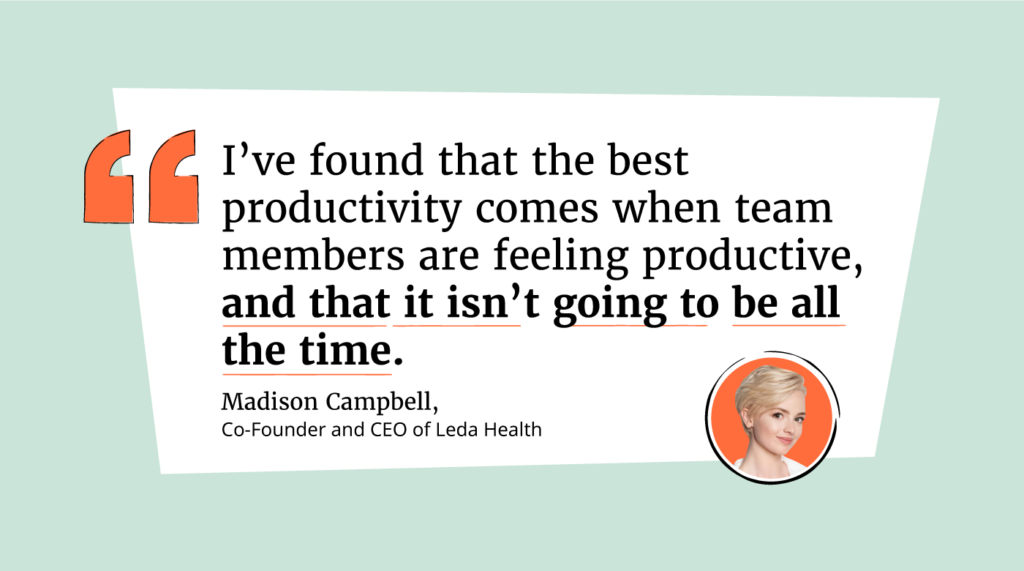We’re passionate about the world of work, and how we can make it better. To help satisfy our curiosity, we’ve launched an interview series where we pick the brains of experienced leaders, business owners, managers, and individual contributors to get their thoughts on how we can collectively build better.
We’d love to get to know you a bit better, tell us a bit about your backstory.
I started building Leda Health in 2019 with my co-founder, Liesel, and our mission is to help break cycles of sexual violence. We know ourselves that sexual assault is an individual issue, but it’s also a global issue, and it impacts every community on earth.
We build trauma-informed tools for survivors and we offer transformative spaces for people who have caused harm. Our tools at Leda Health make it easier for survivors to access care and healing, and our Accountability Circles work to break down cycles of harm.
Before I was an entrepreneur, or even a survivor myself, I was a drama geek growing up in Pennsylvania studying viruses in space populations. You know what they say! Careers aren’t linear.
If we were to ask a friend to describe your personality to us, what would they say?
Zany, quirky, and candid. Pasta addict. They’d also say I rarely take myself too seriously and probably that I’m a workaholic.

Thinking back to your career journey, what’s an interesting story that stands out?
Before Leda, I was the CEO of a company called Iyanu, which focused on expanding opportunities for technical talent in Nigeria. I realized what a problem sexual assault was worldwide when a team member of ours detailed their experience with sexual assault on a cab ride on the way to work. While the assault in itself was something to focus on, it also highlighted the importance of extending compassion and empathy in the workplace. We realized how important it was to prioritize the mental and physical health of the people we work with above all productivity. This early experience, coupled with my own experiences of trauma, have shifted the way I use entrepreneurship for social change. As a founder, you have a huge responsibility to your team - and as a founder working to change the world, the responsibility spans even further. Some days, it feels like a lot. Other days, it’s exactly what motivates me to carry on.
What’s the most impactful lesson you've learned over your career thus far?
Not all criticism needs to be taken as criticism. While people are throwing their negative thoughts and opinions in the mix, it’s important to also read between the lines and gain insight into what you can be doing differently.
Thanks for giving us some insight into who you are! Let’s jump into things. When you hear the phrase “build a better world of work”, what comes to mind?
The idea that workplaces can also be communities of individuals gathering around a common goal comes to mind. It’s easy for work to become a mundane obligation and merely a way to support yourself financially.

For you, what’s the main blocker you see as standing in the way of building a better world of work?
I think the main blocker standing in the way of a better world of work is preconceived notions of what a workplace is supposed to look like.
So many people come to Leda shocked and excited by the unorthodox way we do things and treat our employees.

What’s one thing within our control that we can practically do to build a better world of work today? And, how do you recommend going about it?
We can change how we view productivity and facilitate better productivity.
At Leda, we don’t expect you to complete your best work every time you clock in, and we don’t expect you to sit at your computer for hours upon hours working at the same level.

You don’t want to risk burnout and/or resentment by giving unreasonable deadlines and breathing down everyone’s necks.
Can you share one thing you’ve experienced, seen, or read about that is leading us towards a better world of work?
I’m super interested in the idea of a 4 day work week. It seems to be very effective in practice and yet it’s controversial (when it honestly doesn’t have to be)!
I’m curious, thinking about building a better world of work, is there a company and/or leader who stands out to you as someone we should follow? If so, what are they up to?
My co-founder Liesel is the queen of building an inclusive and supportive workplace. She understands boundaries between work and life and definitely leads by example in that sense. I’m such a workaholic that sometimes I lose track of these boundaries, but Liesel has always maintained consistent boundaries and actively enforces a work/life balance for our whole team.
How can our readers follow your work?
I’m very active on Twitter, and you can also connect with me on LinkedIn!
Thank you for adding your voice to People Managing People’s interview series on How to Build a Better World of Work!
Want To Add Your Voice To The Conversation?
Join our interview series and share your ideas for how we can build a better world of work!
Related Reads:
- Measuring Chaos Tolerance Will Help Us Build A Better World Of Work
- Miscommunication Is Holding Us Back From Building A Better World Of Work
- Defining Our Weaknesses Can Help Us Build A Better World Of Work
- Building A Better World Of Work Starts With Self Awareness
- Flexibility Will Help Build A Better World Of Work
- Best Productivity Tracking Software for Hybrid Teams

